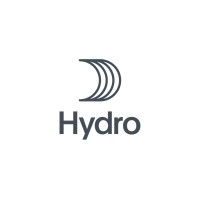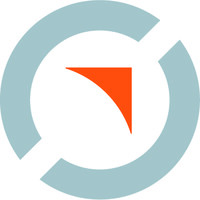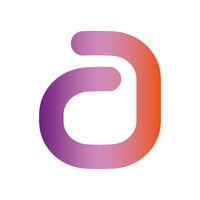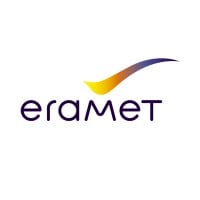Company Details
norsk-hydro
13,004
362,637
212
hydro.com
10
NOR_9295674
Completed

Norsk Hydro Company CyberSecurity Posture
hydro.comHydro is a leading industrial company that builds businesses and partnerships for a more sustainable future. We develop industries that matter to people and society. Since 1905, Hydro has turned natural resources into valuable products for people and businesses, creating a safe and secure workplace for our 31,000 employees in more than 140 locations and 40 countries. Today, we own and operate various businesses and have investments with a base in sustainable industries. Hydro is through its businesses present in a broad range of market segments for aluminium, energy, metal recycling, renewables and batteries, offering a unique wealth of knowledge and competence. Hydro is committed to leading the way towards a more sustainable future, creating more viable societies by developing natural resources into products and solutions in innovative and efficient ways.
Company Details
norsk-hydro
13,004
362,637
212
hydro.com
10
NOR_9295674
Completed
Between 0 and 549

 Norsk Hydro Global Score (TPRM)
Norsk Hydro Global Score (TPRM)XXXX

Description: Norsk Hydro, one of the world's largest aluminum companies, faced a severe cyberattack that halted production lines at some of its 170 plants and pushed other facilities to switch from computer to manual operations. The incident, caused by LockerGoga ransomware, began with an infected email and eventually affected all 35,000 employees across 40 countries, locking files on thousands of servers and PCs. The financial impact neared $71 million. Despite the crisis, Norsk Hydro refused to pay the ransom, opting for transparency and collaborating with Microsoft's cybersecurity team to restore operations. This approach, contrasting the typical secrecy following such breaches, earned global commendation.
Description: In March, Norsk Hydro, one of the world's largest aluminum producers, fell victim to a ransomware attack that brought production to a standstill at some of its 170 plants, forcing others to switch to manual operations. The breach ultimately impacted all 35,000 employees across 40 countries, with the financial toll nearing $71 million. The attack commenced when an employee inadvertently opened a malicious email from a trusted customer. LockerGoga ransomware encrypted files across thousands of the company’s servers and PCs, displaying a ransom note demanding payment in bitcoins for decryption. Norsk Hydro responded by refusing to pay the ransom, collaborating with Microsoft's cybersecurity team to restore operations, and maintaining full transparency about the breach to help others learn from their experience.
Description: In March, Norsk Hydro, one of the world's largest aluminum companies, experienced a significant cyberattack that shut down production lines across its 170 plants, and led to a switch from computer to manual operations at some of its facilities. The attackers used a malware called 'LockerGoga' to encrypt files on thousands of servers and PCs, affecting all 35,000 employees in 40 countries. The financial impact of the attack reached approximately $71 million. The breach occurred due to an employee opening an infected email, leading to a severe compromise of the company's IT infrastructure. Despite the extensive damage, Norsk Hydro chose not to pay the ransom and instead worked on restoring their data from backups and improving their cybersecurity posture with the help of Microsoft's cybersecurity team.
Description: In March 2019, Norsk Hydro, one of the world's largest aluminum companies, suffered a severe ransomware attack that halted production lines and forced some of its 170 plants to switch from computer to manual operations. The breach impacted all 35,000 employees across 40 countries, locking files on thousands of servers and PCs. The financial toll approached $71 million. The breach began when an employee unknowingly opened an infected email from a trusted customer, leading to a widespread Lockergoga ransomware infection. Despite the havoc, Norsk Hydro chose not to pay the ransom, instead opting to restore data from backup servers and enlisted Microsoft's cybersecurity team for support. The company's transparent response to the cyberattack, including daily webcasts and press conferences, was widely praised.
Description: In 2019, **Norsk Hydro**, a Norwegian aluminum manufacturing giant, fell victim to a **LockerGoga ransomware attack** orchestrated by Ukrainian national Volodymyr Viktorovich Tymoshchuk. The attack crippled the company’s global operations, forcing a shift to manual processes across 170 sites in 40 countries. Production lines halted, IT systems were encrypted, and employees resorted to pen-and-paper methods, causing **operational chaos and financial losses estimated at $75 million** in the first week alone. The attack disrupted supply chains, delayed shipments, and required a months-long recovery effort, including full IT infrastructure rebuilds. While no customer or employee data was confirmed stolen, the **business outage and reputational damage** were severe. The incident also exposed vulnerabilities in critical industrial control systems, prompting industry-wide cybersecurity overhauls. Tymoshchuk’s ransomware strain was designed to maximize disruption, encrypting files and locking users out of systems until ransom demands—reportedly in the **millions of dollars**—were met. The attack remains one of the most financially damaging ransomware incidents against a single corporation, illustrating the **existential threat** such cyberattacks pose to industrial sectors.
Description: Norsk Hydro, a Norwegian aluminium and renewable energy company, was one of the most high-profile victims of the **LockerGoga ransomware** attack in **March 2019**, orchestrated by the cybercriminal group linked to **Tymoshchuk Volodymyr Viktorovych (alias Deadforz)**. The attack crippled Hydro’s global operations, forcing the shutdown of **smelting plants, production lines, and IT systems** across **170 sites in 40 countries**. Employees reverted to manual processes, causing **massive operational disruptions**, delayed shipments, and financial losses estimated at **$40–71 million** in the first week alone. The ransomware encrypted critical files, halting automated production and supply chain coordination.Hydro refused to pay the ransom, instead investing in **full system restoration**—a process that took **weeks to months** for complete recovery. The attack exposed vulnerabilities in industrial control systems (ICS) and highlighted the **catastrophic risk of ransomware on manufacturing sectors**. While no **direct data breach** of customer or employee records was confirmed, the **operational paralysis** threatened Hydro’s market position and triggered industry-wide alarms about cyber-physical risks in heavy industries. The incident remains a benchmark for **ransomware’s potential to disrupt global supply chains** and served as a catalyst for stricter cybersecurity regulations in critical infrastructure sectors.
Description: In March 2019, Norsk Hydro, a global aluminum company, was hit by LockerGoga ransomware affecting all 35,000 employees across 40 countries, disrupting production lines, and forcing manual operations. The financial impact was near $71 million as hackers deployed the ransomware through a trusted customer's infected email opened by a Norsk Hydro employee. Despite the severity, Norsk Hydro made three decisions: refusing to pay the ransom, collaborating with Microsoft’s cybersecurity team to restore operations, and maintaining transparency throughout the crisis. This approach of sharing their experience publicly received worldwide praise.
Description: Norsk Hydro, a global aluminum company, experienced a severe ransomware attack that ceased operations at some of its 170 plants. The breach impacted all 35,000 employees across 40 countries by locking files on thousands of servers and PCs. Initiated by an infected email from a customer, the breach allowed hackers to plant LockerGoga ransomware, leading to financial damages nearing $71 million. The company's transparency and decision not to pay the ransom were acclaimed by security experts, and they leaned on Microsoft's cybersecurity team for recovery and restoration.
Description: Norwegian aluminum producer Norsk Hydro fell victim to a ransomware attack in March 2019. The attack affected its world wide operations as the company took preventive steps to contain the attack. The attack cost about 800 million and 1 billion to the company as the attackers logged employees out of company systems and made it impossible for them to work.
Description: Norsk Hydro, one of the world's largest aluminum companies, faced a severe cyberattack in March, ultimately affecting all 35,000 employees across 40 countries. The attack, initiated by an infected email from a trusted customer, caused production lines to halt and forced some facilities to switch to manual operations. The financial impact approached $71 million. Despite the scale of the attack, the company chose not to pay the ransom, instead opting to restore data from backup servers and seek assistance from Microsoft's cybersecurity team. Norsk Hydro's transparent response to the breach was praised for helping to expose the tactics of cyber criminals and possibly preventing similar future threats.
Description: Norsk Hydro, one of the world's largest aluminum companies, faced a significant cyberattack in March, affecting all 35,000 employees across 40 countries. An employee's opening of an infected email from a trusted customer initiated the breach, leading to the encryption of thousands of servers and PCs. This action rendered production lines at some of its 170 plants inoperable, with financial ramifications nearing $71 million. The incident, propelled by the ransomware LockerGoga, forced Norsk Hydro into emergency response, opting against paying the ransom and focusing on restoration and openness. Their strategy included engaging Microsoft’s cybersecurity team for recovery efforts and adopting a transparent communication approach about the breach's details and response, earning global security praise.


No incidents recorded for Norsk Hydro in 2025.
No incidents recorded for Norsk Hydro in 2025.
No incidents recorded for Norsk Hydro in 2025.
Norsk Hydro cyber incidents detection timeline including parent company and subsidiaries

Hydro is a leading industrial company that builds businesses and partnerships for a more sustainable future. We develop industries that matter to people and society. Since 1905, Hydro has turned natural resources into valuable products for people and businesses, creating a safe and secure workplace for our 31,000 employees in more than 140 locations and 40 countries. Today, we own and operate various businesses and have investments with a base in sustainable industries. Hydro is through its businesses present in a broad range of market segments for aluminium, energy, metal recycling, renewables and batteries, offering a unique wealth of knowledge and competence. Hydro is committed to leading the way towards a more sustainable future, creating more viable societies by developing natural resources into products and solutions in innovative and efficient ways.


Salzgitter AG ranks among the leading steel technology groups with € 9 billion in external sales, a crude steel capacity of 7 million tons and a workforce of 25,000 employees. It is one of Europe's largest steel producers and the global market leader in the large-diameter pipes business. The Group

Canadian-based gold producer with operations and projects in the Americas Producteur d’or basé au Canada avec des sites miniers et des projets dans les Amériques ------------------------------------------------------------------------------------------------------------------------------------------

Aperam is a world-leading stainless steel company with sustainability at its heart. Since its launch in 2011, Aperam has become an undisputable global player in stainless, electrical, and specialty steel. With a flat stainless and electrical steel production capacity of 2.5 million tonnes in Brazil

Committed to sustainable metals. Eramet transforme les ressources minérales de la Terre pour apporter des solutions durables et responsables à la croissance de l’industrie et aux défis de la transition énergétique Ses collaborateurs s’y engagent par leur démarche citoyenne et contributive

A major producer of thermal coal: no. 1 in Russia. In 2008, the production volume was 96.2 million tons. One of the main coal exporters: no. 1 in Russia. One of the key private investors in the power generation sector. One of the major job providers in the country: about 46,000 employees in 10 reg

First Quantum Minerals Ltd. is a global mining company producing copper and nickel, as well as gold and cobalt. Our growing portfolio of operations and projects spans four continents and employs around 20,000 people. We are well-known for our ‘can do’ attitude and specialist technical, project mana
Glencore is one of the world’s largest global diversified natural resource companies and a major producer and marketer of more than 60 commodities that advance everyday life. Through a network of assets, customers and suppliers that spans the globe, we produce, process, recycle, source, market and d
Alcoa (NYSE: AA) is a global industry leader in bauxite, alumina and aluminum products with a vision to reinvent the aluminum industry for a sustainable future. With a values-based approach that encompasses integrity, operating excellence, care for people and courageous leadership, our purpose is to

With a history spanning 122 years, Gerdau is Brazil's largest steel producer, one of the leading producers of long steel in the Americas and of special steel in the world. In Brazil, Gerdau also produces flat steel and iron ore for its own use. Gerdau also has a new business division, Gerdau Next, w
.png)
A Ukrainian national faces serious federal charges and an $11 million bounty after allegedly orchestrating ransomware operations that caused...
Volodymyr Tymoshchuk has been indicted by the United States for his involvement in ransomware crimes that stole an estimated $18 billion...
Hackers successfully took control of critical operational systems at a dam facility near Risevatnet in Bremanger, Norway, during April.
When ransomware knocks businesses offline, it's often trusty old pen and paper that comes to the rescue. Preparing for this switch to analogue can help...
To secure a cybersecurity analyst role in Norway, start with a bachelor's in computer science and obtain certifications like CISSP and CEH.
Norway's cybersecurity job market is booming, with a projected 7.04% annual growth until 2029, creating opportunities in tech,...
Norway's cybersecurity job market is set to expand significantly in 2024, valued at $821.50 million. Key growth areas include cloud security, incident response...
Incidents like the attack on Norsk Hydro are expected to grow more common, according to a survey on cybersecurity trends in industries using industrial...
The ransomware attack on Norsk Hydro reported last week has so far cost the company NOK 300-350 million or around $40 million (€36 million).

Explore insights on cybersecurity incidents, risk posture, and Rankiteo's assessments.
The official website of Norsk Hydro is http://www.hydro.com.
According to Rankiteo, Norsk Hydro’s AI-generated cybersecurity score is 451, reflecting their Critical security posture.
According to Rankiteo, Norsk Hydro currently holds 0 security badges, indicating that no recognized compliance certifications are currently verified for the organization.
According to Rankiteo, Norsk Hydro is not certified under SOC 2 Type 1.
According to Rankiteo, Norsk Hydro does not hold a SOC 2 Type 2 certification.
According to Rankiteo, Norsk Hydro is not listed as GDPR compliant.
According to Rankiteo, Norsk Hydro does not currently maintain PCI DSS compliance.
According to Rankiteo, Norsk Hydro is not compliant with HIPAA regulations.
According to Rankiteo,Norsk Hydro is not certified under ISO 27001, indicating the absence of a formally recognized information security management framework.
Norsk Hydro operates primarily in the Mining industry.
Norsk Hydro employs approximately 13,004 people worldwide.
Norsk Hydro presently has no subsidiaries across any sectors.
Norsk Hydro’s official LinkedIn profile has approximately 362,637 followers.
Norsk Hydro is classified under the NAICS code 212, which corresponds to Mining (except Oil and Gas).
Yes, Norsk Hydro has an official profile on Crunchbase, which can be accessed here: https://www.crunchbase.com/organization/norsk-hydro.
Yes, Norsk Hydro maintains an official LinkedIn profile, which is actively utilized for branding and talent engagement, which can be accessed here: https://www.linkedin.com/company/norsk-hydro.
As of November 27, 2025, Rankiteo reports that Norsk Hydro has experienced 11 cybersecurity incidents.
Norsk Hydro has an estimated 3,667 peer or competitor companies worldwide.
Incident Types: The types of cybersecurity incidents that have occurred include Breach, Ransomware, Vulnerability and Cyber Attack.
Total Financial Loss: The total financial loss from these incidents is estimated to be $818.67 billion.
Detection and Response: The company detects and responds to cybersecurity incidents through an containment measures with preventive steps to contain the attack, and third party assistance with microsoft's cybersecurity team, and remediation measures with data restoration from backups, and communication strategy with daily webcasts and press conferences, and third party assistance with microsoft's cybersecurity team, and communication strategy with transparency, and third party assistance with microsoft’s cybersecurity team, and communication strategy with transparent communication about the breach's details and response, and third party assistance with microsoft's cybersecurity team, and remediation measures with restoring data from backups, and recovery measures with improving cybersecurity posture, and third party assistance with microsoft's cybersecurity team, and remediation measures with restore data from backup servers, and communication strategy with transparent response, and third party assistance with microsoft's cybersecurity team, and communication strategy with full transparency, and third party assistance with microsoft’s cybersecurity team, and communication strategy with transparency, and third party assistance with microsoft's cybersecurity team, and recovery measures with restoration of systems, and communication strategy with transparency, and and third party assistance with law enforcement (fbi, europol, etc.), third party assistance with cybersecurity firms (e.g., bitdefender), and and containment measures with network isolation, containment measures with pre-encryption notifications by law enforcement, and remediation measures with data restoration from backups, remediation measures with decryptor tools (no more ransomware project), and recovery measures with system rebuilds, recovery measures with enhanced security protocols, and communication strategy with public indictment announcement, communication strategy with victim notifications, and and and third party assistance with europol, third party assistance with international law enforcement agencies (france, germany, netherlands, norway, switzerland, ukraine, uk, us), and and communication strategy with public engagement via eu most wanted portal, communication strategy with media releases by europol/us doj..
Title: Ransomware Attack on Norsk Hydro
Description: Norwegian aluminum producer Norsk Hydro fell victim to a ransomware attack in March 2019. The attack affected its worldwide operations as the company took preventive steps to contain the attack. The attack cost about 800 million to 1 billion to the company as the attackers logged employees out of company systems and made it impossible for them to work.
Date Detected: March 2019
Type: Ransomware
Title: Norsk Hydro Ransomware Attack
Description: Norsk Hydro, a major aluminum company, experienced a ransomware attack in March 2019 that disrupted production lines and forced manual operations. The attack affected 35,000 employees across 40 countries, resulting in a financial loss of approximately $71 million. The breach was initiated by an employee opening an infected email, leading to the spread of the Lockergoga ransomware. Norsk Hydro did not pay the ransom, choosing instead to restore data from backups with the help of Microsoft's cybersecurity team.
Date Detected: March 2019
Type: Ransomware
Attack Vector: Phishing Email
Motivation: Financial Gain
Title: Norsk Hydro Ransomware Attack
Description: Norsk Hydro faced a severe cyberattack that halted production lines at some of its 170 plants and pushed other facilities to switch from computer to manual operations.
Type: Ransomware
Attack Vector: Infected email
Motivation: Financial gain
Title: Norsk Hydro Ransomware Attack
Description: Norsk Hydro, one of the world's largest aluminum companies, faced a significant cyberattack in March, affecting all 35,000 employees across 40 countries. An employee's opening of an infected email from a trusted customer initiated the breach, leading to the encryption of thousands of servers and PCs. This action rendered production lines at some of its 170 plants inoperable, with financial ramifications nearing $71 million. The incident, propelled by the ransomware LockerGoga, forced Norsk Hydro into emergency response, opting against paying the ransom and focusing on restoration and openness. Their strategy included engaging Microsoft’s cybersecurity team for recovery efforts and adopting a transparent communication approach about the breach's details and response, earning global security praise.
Date Detected: March 2019
Type: Ransomware Attack
Attack Vector: Phishing Email
Motivation: Financial Gain
Title: Norsk Hydro Ransomware Attack
Description: A significant cyberattack shut down production lines across Norsk Hydro's 170 plants, switching from computer to manual operations at some facilities. The attackers used 'LockerGoga' malware to encrypt files on thousands of servers and PCs, affecting all 35,000 employees in 40 countries. The breach occurred due to an employee opening an infected email, leading to a severe compromise of the company's IT infrastructure. Despite the extensive damage, Norsk Hydro chose not to pay the ransom and instead worked on restoring their data from backups and improving their cybersecurity posture with the help of Microsoft's cybersecurity team.
Date Detected: March
Type: Ransomware
Attack Vector: Email
Vulnerability Exploited: Phishing
Motivation: Financial
Title: Norsk Hydro Ransomware Attack
Description: Norsk Hydro, one of the world's largest aluminum companies, faced a severe cyberattack in March, ultimately affecting all 35,000 employees across 40 countries. The attack, initiated by an infected email from a trusted customer, caused production lines to halt and forced some facilities to switch to manual operations. The financial impact approached $71 million. Despite the scale of the attack, the company chose not to pay the ransom, instead opting to restore data from backup servers and seek assistance from Microsoft's cybersecurity team. Norsk Hydro's transparent response to the breach was praised for helping to expose the tactics of cyber criminals and possibly preventing similar future threats.
Date Detected: March 2019
Type: Cyberattack
Attack Vector: Phishing Email
Motivation: Financial
Title: Ransomware Attack on Norsk Hydro
Description: Norsk Hydro, one of the world's largest aluminum producers, was hit by a ransomware attack that impacted production at its plants and forced others to switch to manual operations.
Date Detected: March 2019
Type: Ransomware
Attack Vector: Malicious email
Motivation: Financial gain
Title: Norsk Hydro Ransomware Attack
Description: In March 2019, Norsk Hydro, a global aluminum company, was hit by LockerGoga ransomware affecting all 35,000 employees across 40 countries, disrupting production lines, and forcing manual operations. The financial impact was near $71 million as hackers deployed the ransomware through a trusted customer's infected email opened by a Norsk Hydro employee. Despite the severity, Norsk Hydro made three decisions: refusing to pay the ransom, collaborating with Microsoft’s cybersecurity team to restore operations, and maintaining transparency throughout the crisis. This approach of sharing their experience publicly received worldwide praise.
Date Detected: March 2019
Type: Ransomware
Attack Vector: Email
Motivation: Financial
Title: Norsk Hydro Ransomware Attack
Description: Norsk Hydro, a global aluminum company, experienced a severe ransomware attack that ceased operations at some of its 170 plants. The breach impacted all 35,000 employees across 40 countries by locking files on thousands of servers and PCs. Initiated by an infected email from a customer, the breach allowed hackers to plant LockerGoga ransomware, leading to financial damages nearing $71 million. The company's transparency and decision not to pay the ransom were acclaimed by security experts, and they leaned on Microsoft's cybersecurity team for recovery and restoration.
Type: Ransomware Attack
Attack Vector: Infected Email
Motivation: Financial Gain
Title: Indictment of Ukrainian National Volodymyr Viktorovich Tymoshchuk for Ransomware Attacks Using LockerGoga, MegaCortex, and Nefilim
Description: A U.S. federal court unsealed a May 2024 indictment charging Ukrainian national Volodymyr Viktorovich Tymoshchuk (alias: deadforz, Boba, msfv, farnetwork) for his alleged role as an administrator of ransomware strains LockerGoga, MegaCortex, and Nefilim. Between December 2018 and October 2021, Tymoshchuk targeted hundreds of organizations in the U.S. and Europe, causing millions in damages. Notable victims include Norsk Hydro (2019 LockerGoga attack, $104M in damages), Altran, Hexion, and Momentive. Tymoshchuk is currently a fugitive with an $11M U.S. State Department reward for information leading to his arrest. He faces charges including conspiracy to commit fraud, intentional damage to protected computers, and transmitting threats to disclose confidential information. Law enforcement disrupted some attacks by notifying victims pre-encryption. Decryptors for LockerGoga (2022) and MegaCortex (2023) were later released via the No More Ransomware Project. Europol-led operations in 2021 and 2023 resulted in arrests of 12+ affiliates across multiple countries.
Date Publicly Disclosed: 2024-05-28
Type: ransomware
Attack Vector: exploiting known vulnerabilitiespre-existing malware infections (e.g., Emotet, Qakbot)targeted phishing/social engineering
Threat Actor: Name: Volodymyr Viktorovich TymoshchukAliases: ['deadforz', 'Boba', 'msfv', 'farnetwork']Nationality: UkrainianAffiliation: ['LockerGoga', 'MegaCortex', 'Nefilim ransomware groups']Status: fugitiveReward: $11 million (U.S. State Department)
Motivation: financial gain (extortion)
Title: LockerGoga, MegaCortex, and Nefilim Ransomware Campaigns Linked to Fugitive Tymoshchuk Volodymyr Viktorovych
Description: A Ukrainian man, Tymoshchuk Volodymyr Viktorovych (aliases: Deadforz, Boba, Farnetwork, Msfv, Volotmsk), is wanted for deploying LockerGoga, MegaCortex, and Nefilim ransomware between 2018–2021. The campaigns targeted over 250 companies (primarily in the US) and caused an estimated $18 billion in global damages. Victims faced extortion demands or operational disruption. Tymoshchuk is linked to an organized crime network with roles including malware development, intrusion, and money laundering. He remains at large, with a $11 million US bounty for his capture. Several associates have been arrested in Ukraine.
Date Publicly Disclosed: 2025-09-09
Type: ransomware attack
Attack Vector: malware deploymentnetwork intrusiondata encryption
Threat Actor: Name: Tymoshchuk Volodymyr ViktorovychAliases: ['Deadforz', 'Boba', 'Farnetwork', 'Msfv', 'Volotmsk']Affiliation: Organized crime network (malware developers, intrusion experts, money launderers)Nationality: UkrainianPhysical Description: {'height': '180 cm', 'eye_color': 'brown', 'languages': ['Ukrainian']}Date Of Birth: 1996-10-02Status: Fugitive (wanted by France for computer crimes, extortion, racketeering; US charges for ransomware administration)Bounty: $11 million (US Department of Justice)
Motivation: financial gainextortiondisruption of business operations
Common Attack Types: The most common types of attacks the company has faced is Ransomware.
Identification of Attack Vectors: The company identifies the attack vectors used in incidents through Phishing Email, Infected email from a trusted customer, Infected email, Infected Email, Malicious email, Trusted customer's infected email, Infected email from a customer and exploited vulnerabilitiespre-existing malware (Emotet/Qakbot)compromised credentials.

Financial Loss: 800 million to 1 billion
Systems Affected: company systems
Operational Impact: worldwide operations

Financial Loss: $71 million
Systems Affected: Thousands of servers and PCs
Operational Impact: Production lines halted, manual operations
Brand Reputation Impact: Praised for transparent response

Financial Loss: $71 million
Systems Affected: Production linesServersPCs
Operational Impact: Halted production linesSwitch to manual operations
Brand Reputation Impact: Global commendation for transparency

Financial Loss: Approximately $71 million
Systems Affected: Thousands of servers and PCsProduction lines at some of its 170 plants
Brand Reputation Impact: Earned global security praise

Financial Loss: $71 million
Systems Affected: Thousands of servers and PCs
Downtime: Switch from computer to manual operations
Operational Impact: Shutdown of production lines across 170 plants

Financial Loss: $71 million
Systems Affected: Production LinesManual Operations
Operational Impact: Production lines haltedFacilities switched to manual operations
Brand Reputation Impact: Positive for transparent response

Financial Loss: $71 million
Systems Affected: serversPCs
Operational Impact: Production standstill, switch to manual operations

Financial Loss: $71 million
Systems Affected: Production lines
Operational Impact: Manual operations
Brand Reputation Impact: Worldwide praise

Financial Loss: $71 million
Systems Affected: Thousands of servers and PCs
Operational Impact: Ceased operations at some of its 170 plants

Financial Loss: $100+ million (estimated, including $104M from LockerGoga alone)
Systems Affected: hundreds of organizations (U.S. and Europe)
Downtime: ['complete disruption of business operations (varies by victim)', 'Norsk Hydro: weeks of recovery']
Operational Impact: severe (encryption of critical systems, halted production)
Brand Reputation Impact: high (publicized attacks on major firms like Norsk Hydro)
Legal Liabilities: potential lawsuits from victimsregulatory fines (if applicable)
Identity Theft Risk: high (if PII was exfiltrated)
Payment Information Risk: high (if financial data was exfiltrated)

Financial Loss: $18 billion (estimated global damages)
Systems Affected: 250+ companies (primarily in the US) and additional international victims
Operational Impact: network cripplingbusiness disruptiondata leakage threats
Legal Liabilities: potential lawsuits from victimsregulatory penalties
Average Financial Loss: The average financial loss per incident is $74.42 billion.
Commonly Compromised Data Types: The types of data most commonly compromised in incidents are Corporate Data, Potentially Pii/Financial Data (Varies By Victim), , Sensitive Corporate Data, Potentially Pii and .

Entity Name: Norsk Hydro
Entity Type: Company
Industry: Aluminum Production
Location: Norway

Entity Name: Norsk Hydro
Entity Type: Company
Industry: Aluminum
Location: Global, across 40 countries
Size: 35,000 employees

Entity Name: Norsk Hydro
Entity Type: Company
Industry: Aluminum production
Location: 40 countries
Size: 35,000 employees

Entity Name: Norsk Hydro
Entity Type: Aluminum Company
Industry: Manufacturing
Location: 40 countries
Size: 35,000 employees

Entity Name: Norsk Hydro
Entity Type: Company
Industry: Aluminum
Location: Global (40 countries)
Size: 35,000 employees

Entity Name: Norsk Hydro
Entity Type: Company
Industry: Aluminum Production
Location: Global
Size: 35,000 employees

Entity Name: Norsk Hydro
Entity Type: Corporate
Industry: Aluminum Production
Location: Global
Size: 35,000 employees

Entity Name: Norsk Hydro
Entity Type: Company
Industry: Aluminum
Location: Global
Size: 35,000 employees

Entity Name: Norsk Hydro
Entity Type: Global Aluminum Company
Industry: Aluminum
Location: 40 countries
Size: 35,000 employees

Entity Name: Norsk Hydro
Entity Type: public company
Industry: aluminum manufacturing
Location: Norway
Size: large (global enterprise)

Entity Name: Altran
Entity Type: private company
Industry: engineering consulting
Location: France
Size: large

Entity Name: Hexion
Entity Type: private company
Industry: chemical manufacturing
Location: U.S.
Size: large

Entity Name: Momentive
Entity Type: private company
Industry: materials science/manufacturing
Location: U.S.
Size: large

Entity Name: 250+ U.S. companies (unspecified)
Industry: healthcare, industrial, manufacturing, other sectors
Location: U.S.

Entity Name: Hundreds of European organizations (unspecified)
Location: Europe

Entity Type: private companies, enterprises
Location: United StatesFranceGermanyNetherlandsNorwaySwitzerlandUkraineUnited Kingdomother international victims

Containment Measures: preventive steps to contain the attack

Third Party Assistance: Microsoft's cybersecurity team
Remediation Measures: Data restoration from backups
Communication Strategy: Daily webcasts and press conferences

Third Party Assistance: Microsoft'S Cybersecurity Team.
Communication Strategy: Transparency

Third Party Assistance: Microsoft’s cybersecurity team
Communication Strategy: Transparent communication about the breach's details and response

Third Party Assistance: Microsoft's cybersecurity team
Remediation Measures: Restoring data from backups
Recovery Measures: Improving cybersecurity posture

Third Party Assistance: Microsoft's cybersecurity team
Remediation Measures: Restore data from backup servers
Communication Strategy: Transparent response

Third Party Assistance: Microsoft's cybersecurity team
Communication Strategy: Full transparency

Third Party Assistance: Microsoft’s cybersecurity team
Communication Strategy: Transparency

Third Party Assistance: Microsoft's cybersecurity team
Recovery Measures: Restoration of systems
Communication Strategy: Transparency

Incident Response Plan Activated: True
Third Party Assistance: Law Enforcement (Fbi, Europol, Etc.), Cybersecurity Firms (E.G., Bitdefender).
Containment Measures: network isolationpre-encryption notifications by law enforcement
Remediation Measures: data restoration from backupsdecryptor tools (No More Ransomware Project)
Recovery Measures: system rebuildsenhanced security protocols
Communication Strategy: public indictment announcementvictim notifications

Incident Response Plan Activated: True
Third Party Assistance: Europol, International Law Enforcement Agencies (France, Germany, Netherlands, Norway, Switzerland, Ukraine, Uk, Us).
Communication Strategy: public engagement via EU Most Wanted portalmedia releases by Europol/US DOJ
Third-Party Assistance: The company involves third-party assistance in incident response through Microsoft's cybersecurity team, Microsoft's cybersecurity team, , Microsoft’s cybersecurity team, Microsoft's cybersecurity team, Microsoft's cybersecurity team, Microsoft's cybersecurity team, Microsoft’s cybersecurity team, Microsoft's cybersecurity team, law enforcement (FBI, Europol, etc.), cybersecurity firms (e.g., Bitdefender), , Europol, international law enforcement agencies (France, Germany, Netherlands, Norway, Switzerland, Ukraine, UK, US), .

Data Encryption: Files encrypted

Data Encryption: Files locked by ransomware

Type of Data Compromised: Corporate data, Potentially pii/financial data (varies by victim)
Sensitivity of Data: high (industrial/proprietary data, possible PII)
Data Encryption: True
Personally Identifiable Information: likely (in some cases)

Type of Data Compromised: Sensitive corporate data, Potentially pii
Sensitivity of Data: High (threats of data leakage used for extortion)
Data Encryption: True
Prevention of Data Exfiltration: The company takes the following measures to prevent data exfiltration: Data restoration from backups, Restoring data from backups, Restore data from backup servers, data restoration from backups, decryptor tools (No More Ransomware Project), .
Handling of PII Incidents: The company handles incidents involving personally identifiable information (PII) through by preventive steps to contain the attack, network isolation, pre-encryption notifications by law enforcement and .

Ransom Paid: Not paid
Ransomware Strain: LockerGoga
Data Encryption: Thousands of servers and PCs

Ransom Paid: No

Ransom Demanded: Bitcoins
Ransom Paid: Refused to pay
Ransomware Strain: LockerGoga
Data Encryption: Files encrypted

Ransom Paid: No
Ransomware Strain: LockerGoga
Data Encryption: Yes

Ransomware Strain: LockerGogaMegaCortexNefilim
Data Encryption: True
Data Exfiltration: True

Ransom Demanded: True
Ransomware Strain: LockerGogaMegaCortexNefilim
Data Encryption: True
Data Exfiltration: True
Data Recovery from Ransomware: The company recovers data encrypted by ransomware through Improving cybersecurity posture, Restoration of systems, system rebuilds, enhanced security protocols, .

Legal Actions: U.S. indictment (2024), extradition of affiliate Artem Stryzhak (2024), Europol-led arrests (2021, 2023),

Legal Actions: US indictment for ransomware administration, French charges for computer crimes, extortion, racketeering,
Ensuring Regulatory Compliance: The company ensures compliance with regulatory requirements through U.S. indictment (2024), extradition of affiliate Artem Stryzhak (2024), Europol-led arrests (2021, 2023), , US indictment for ransomware administration, French charges for computer crimes, extortion, racketeering, .

Lessons Learned: Transparent communication and public trust

Lessons Learned: Proactive law enforcement notifications can disrupt ransomware deployment., Decryptor tools (e.g., via No More Ransomware) mitigate damage post-attack., Complex ransomware operations rely on specialized teams (e.g., vulnerability exploitation, lateral movement)., International cooperation is critical for dismantling cybercriminal networks.

Recommendations: Implement robust backup and recovery plans to mitigate ransomware impact., Monitor for known vulnerabilities and patch exposed infrastructure promptly., Deploy network segmentation to limit lateral movement by attackers., Participate in threat intelligence sharing (e.g., with law enforcement, ISACs)., Train employees on recognizing phishing/social engineering tactics.Implement robust backup and recovery plans to mitigate ransomware impact., Monitor for known vulnerabilities and patch exposed infrastructure promptly., Deploy network segmentation to limit lateral movement by attackers., Participate in threat intelligence sharing (e.g., with law enforcement, ISACs)., Train employees on recognizing phishing/social engineering tactics.Implement robust backup and recovery plans to mitigate ransomware impact., Monitor for known vulnerabilities and patch exposed infrastructure promptly., Deploy network segmentation to limit lateral movement by attackers., Participate in threat intelligence sharing (e.g., with law enforcement, ISACs)., Train employees on recognizing phishing/social engineering tactics.Implement robust backup and recovery plans to mitigate ransomware impact., Monitor for known vulnerabilities and patch exposed infrastructure promptly., Deploy network segmentation to limit lateral movement by attackers., Participate in threat intelligence sharing (e.g., with law enforcement, ISACs)., Train employees on recognizing phishing/social engineering tactics.Implement robust backup and recovery plans to mitigate ransomware impact., Monitor for known vulnerabilities and patch exposed infrastructure promptly., Deploy network segmentation to limit lateral movement by attackers., Participate in threat intelligence sharing (e.g., with law enforcement, ISACs)., Train employees on recognizing phishing/social engineering tactics.
Key Lessons Learned: The key lessons learned from past incidents are Transparent communication and public trustProactive law enforcement notifications can disrupt ransomware deployment.,Decryptor tools (e.g., via No More Ransomware) mitigate damage post-attack.,Complex ransomware operations rely on specialized teams (e.g., vulnerability exploitation, lateral movement).,International cooperation is critical for dismantling cybercriminal networks.

Source: Bitdefender Threat Research

Source: Europol Press Releases (2021, 2023)

Source: US Department of Justice Indictment
Additional Resources: Stakeholders can find additional resources on cybersecurity best practices at and Source: U.S. Department of JusticeDate Accessed: 2024-05-28, and Source: Recorded Future NewsDate Accessed: 2024-05-28, and Source: Bitdefender Threat Research, and Source: Europol Press Releases (2021, 2023), and Source: Europol Press ReleaseDate Accessed: 2025-09-09, and Source: EU Most Wanted PortalDate Accessed: 2025-09-09, and Source: US Department of Justice Indictment.

Investigation Status: ongoing (Tymoshchuk remains at large; affiliate arrests continue)

Investigation Status: Ongoing (fugitive at large; international manhunt active)
Communication of Investigation Status: The company communicates the status of incident investigations to stakeholders through Daily webcasts and press conferences, Transparency, Transparent communication about the breach's details and response, Transparent response, Full transparency, Transparency, Transparency, Public Indictment Announcement, Victim Notifications, Public Engagement Via Eu Most Wanted Portal and Media Releases By Europol/Us Doj.

Stakeholder Advisories: U.S. State Department Reward Notice, Doj/Fbi Public Statements.

Stakeholder Advisories: Public Urged To Report Tips Via Eu Most Wanted Portal.
Advisories Provided: The company provides the following advisories to stakeholders and customers following an incident: were U.S. State Department Reward Notice, Doj/Fbi Public Statements and Public Urged To Report Tips Via Eu Most Wanted Portal.

Entry Point: Phishing Email

Entry Point: Infected email from a trusted customer

Entry Point: Infected email

Entry Point: Infected Email

Entry Point: Malicious email

Entry Point: Trusted customer's infected email

Entry Point: Infected email from a customer

Entry Point: Exploited Vulnerabilities, Pre-Existing Malware (Emotet/Qakbot), Compromised Credentials,
Backdoors Established: True
High Value Targets: Industrial Firms, Healthcare Institutions, Manufacturing Companies,
Data Sold on Dark Web: Industrial Firms, Healthcare Institutions, Manufacturing Companies,

High Value Targets: Corporate Networks, Sensitive Data,
Data Sold on Dark Web: Corporate Networks, Sensitive Data,

Root Causes: Employee opening infected email
Corrective Actions: Data restoration from backups, third-party support

Root Causes: Employee opening an infected email

Root Causes: Exploitable Vulnerabilities In Exposed Infrastructure., Lack Of Network Segmentation Allowing Lateral Movement., Effective Use Of Pre-Existing Malware (E.G., Emotet) For Initial Access.,
Corrective Actions: Release Of Decryptors Via No More Ransomware Project., International Law Enforcement Operations (Arrests In 2021, 2023)., Public Indictments To Deter Future Attacks.,

Root Causes: Organized Cybercrime Collaboration, Exploitation Of Network Vulnerabilities, Lack Of Early Detection,
Post-Incident Analysis Process: The company's process for conducting post-incident analysis is described as Microsoft's cybersecurity team, Microsoft'S Cybersecurity Team, , Microsoft’s cybersecurity team, Microsoft's cybersecurity team, Microsoft's cybersecurity team, Microsoft's cybersecurity team, Microsoft’s cybersecurity team, Microsoft's cybersecurity team, Law Enforcement (Fbi, Europol, Etc.), Cybersecurity Firms (E.G., Bitdefender), , , Europol, International Law Enforcement Agencies (France, Germany, Netherlands, Norway, Switzerland, Ukraine, Uk, Us), .
Corrective Actions Taken: The company has taken the following corrective actions based on post-incident analysis: Data restoration from backups, third-party support, Release Of Decryptors Via No More Ransomware Project., International Law Enforcement Operations (Arrests In 2021, 2023)., Public Indictments To Deter Future Attacks., .
Ransom Payment History: The company has Paid ransoms in the past.
Last Ransom Demanded: The amount of the last ransom demanded was Bitcoins.
Last Attacking Group: The attacking group in the last incident were an Name: Volodymyr Viktorovich TymoshchukAliases: ['deadforz', 'Boba', 'msfv', 'farnetwork']Nationality: UkrainianAffiliation: ['LockerGoga', 'MegaCortex', 'Nefilim ransomware groups']Status: fugitiveReward: $11 million (U.S. State Department), Name: Tymoshchuk Volodymyr ViktorovychAliases: ['Deadforz', 'Boba', 'Farnetwork', 'Msfv', 'Volotmsk']Affiliation: Organized crime network (malware developers, intrusion experts, money launderers)Nationality: UkrainianPhysical Description: {'height': '180 cm', 'eye_color': 'brown', 'languages': ['Ukrainian']}Date Of Birth: 1996-10-02Status: Fugitive (wanted by France for computer crimes, extortion and racketeering; US charges for ransomware administration)Bounty: $11 million (US Department of Justice).
Most Recent Incident Detected: The most recent incident detected was on March 2019.
Most Recent Incident Publicly Disclosed: The most recent incident publicly disclosed was on 2025-09-09.
Highest Financial Loss: The highest financial loss from an incident was $71 million.
Most Significant System Affected: The most significant system affected in an incident was Production linesServersPCs and Thousands of servers and PCsProduction lines at some of its 170 plants and and Production LinesManual Operations and serversPCs and and Thousands of servers and PCs and and .
Third-Party Assistance in Most Recent Incident: The third-party assistance involved in the most recent incident was Microsoft's cybersecurity team, microsoft's cybersecurity team, , Microsoft’s cybersecurity team, Microsoft's cybersecurity team, Microsoft's cybersecurity team, Microsoft's cybersecurity team, Microsoft’s cybersecurity team, Microsoft's cybersecurity team, law enforcement (fbi, europol, etc.), cybersecurity firms (e.g., bitdefender), , europol, international law enforcement agencies (france, germany, netherlands, norway, switzerland, ukraine, uk, us), .
Containment Measures in Most Recent Incident: The containment measures taken in the most recent incident were preventive steps to contain the attack and network isolationpre-encryption notifications by law enforcement.
Most Significant Legal Action: The most significant legal action taken for a regulatory violation was U.S. indictment (2024), extradition of affiliate Artem Stryzhak (2024), Europol-led arrests (2021, 2023), , US indictment for ransomware administration, French charges for computer crimes, extortion, racketeering, .
Most Significant Lesson Learned: The most significant lesson learned from past incidents was International cooperation is critical for dismantling cybercriminal networks.
Most Significant Recommendation Implemented: The most significant recommendation implemented to improve cybersecurity was Train employees on recognizing phishing/social engineering tactics., Implement robust backup and recovery plans to mitigate ransomware impact., Monitor for known vulnerabilities and patch exposed infrastructure promptly., Participate in threat intelligence sharing (e.g., with law enforcement, ISACs). and Deploy network segmentation to limit lateral movement by attackers..
Most Recent Source: The most recent source of information about an incident are Europol Press Releases (2021, 2023), U.S. Department of Justice, EU Most Wanted Portal, US Department of Justice Indictment, Europol Press Release, Recorded Future News and Bitdefender Threat Research.
Current Status of Most Recent Investigation: The current status of the most recent investigation is ongoing (Tymoshchuk remains at large; affiliate arrests continue).
Most Recent Stakeholder Advisory: The most recent stakeholder advisory issued was U.S. State Department reward notice, DOJ/FBI public statements, Public urged to report tips via EU Most Wanted portal, .
Most Recent Entry Point: The most recent entry point used by an initial access broker were an Infected email, Malicious email, Infected email from a customer, Infected email from a trusted customer, Trusted customer's infected email, Infected Email and Phishing Email.
Most Significant Root Cause: The most significant root cause identified in post-incident analysis was Employee opening infected email, Employee opening an infected email, Exploitable vulnerabilities in exposed infrastructure.Lack of network segmentation allowing lateral movement.Effective use of pre-existing malware (e.g., Emotet) for initial access., organized cybercrime collaborationexploitation of network vulnerabilitieslack of early detection.
Most Significant Corrective Action: The most significant corrective action taken based on post-incident analysis was Data restoration from backups, third-party support, Release of decryptors via No More Ransomware Project.International law enforcement operations (arrests in 2021, 2023).Public indictments to deter future attacks..
.png)
Angular is a development platform for building mobile and desktop web applications using TypeScript/JavaScript and other languages. Prior to versions 19.2.16, 20.3.14, and 21.0.1, there is a XSRF token leakage via protocol-relative URLs in angular HTTP clients. The vulnerability is a Credential Leak by App Logic that leads to the unauthorized disclosure of the Cross-Site Request Forgery (XSRF) token to an attacker-controlled domain. Angular's HttpClient has a built-in XSRF protection mechanism that works by checking if a request URL starts with a protocol (http:// or https://) to determine if it is cross-origin. If the URL starts with protocol-relative URL (//), it is incorrectly treated as a same-origin request, and the XSRF token is automatically added to the X-XSRF-TOKEN header. This issue has been patched in versions 19.2.16, 20.3.14, and 21.0.1. A workaround for this issue involves avoiding using protocol-relative URLs (URLs starting with //) in HttpClient requests. All backend communication URLs should be hardcoded as relative paths (starting with a single /) or fully qualified, trusted absolute URLs.
Forge (also called `node-forge`) is a native implementation of Transport Layer Security in JavaScript. An Uncontrolled Recursion vulnerability in node-forge versions 1.3.1 and below enables remote, unauthenticated attackers to craft deep ASN.1 structures that trigger unbounded recursive parsing. This leads to a Denial-of-Service (DoS) via stack exhaustion when parsing untrusted DER inputs. This issue has been patched in version 1.3.2.
Forge (also called `node-forge`) is a native implementation of Transport Layer Security in JavaScript. An Integer Overflow vulnerability in node-forge versions 1.3.1 and below enables remote, unauthenticated attackers to craft ASN.1 structures containing OIDs with oversized arcs. These arcs may be decoded as smaller, trusted OIDs due to 32-bit bitwise truncation, enabling the bypass of downstream OID-based security decisions. This issue has been patched in version 1.3.2.
Suricata is a network IDS, IPS and NSM engine developed by the OISF (Open Information Security Foundation) and the Suricata community. Prior to versions 7.0.13 and 8.0.2, working with large buffers in Lua scripts can lead to a stack overflow. Users of Lua rules and output scripts may be affected when working with large buffers. This includes a rule passing a large buffer to a Lua script. This issue has been patched in versions 7.0.13 and 8.0.2. A workaround for this issue involves disabling Lua rules and output scripts, or making sure limits, such as stream.depth.reassembly and HTTP response body limits (response-body-limit), are set to less than half the stack size.
Suricata is a network IDS, IPS and NSM engine developed by the OISF (Open Information Security Foundation) and the Suricata community. In versions from 8.0.0 to before 8.0.2, a NULL dereference can occur when the entropy keyword is used in conjunction with base64_data. This issue has been patched in version 8.0.2. A workaround involves disabling rules that use entropy in conjunction with base64_data.

Get company history
















Every week, Rankiteo analyzes billions of signals to give organizations a sharper, faster view of emerging risks. With deeper, more actionable intelligence at their fingertips, security teams can outpace threat actors, respond instantly to Zero-Day attacks, and dramatically shrink their risk exposure window.
Identify exposed access points, detect misconfigured SSL certificates, and uncover vulnerabilities across the network infrastructure.
Gain visibility into the software components used within an organization to detect vulnerabilities, manage risk, and ensure supply chain security.
Monitor and manage all IT assets and their configurations to ensure accurate, real-time visibility across the company's technology environment.
Leverage real-time insights on active threats, malware campaigns, and emerging vulnerabilities to proactively defend against evolving cyberattacks.




